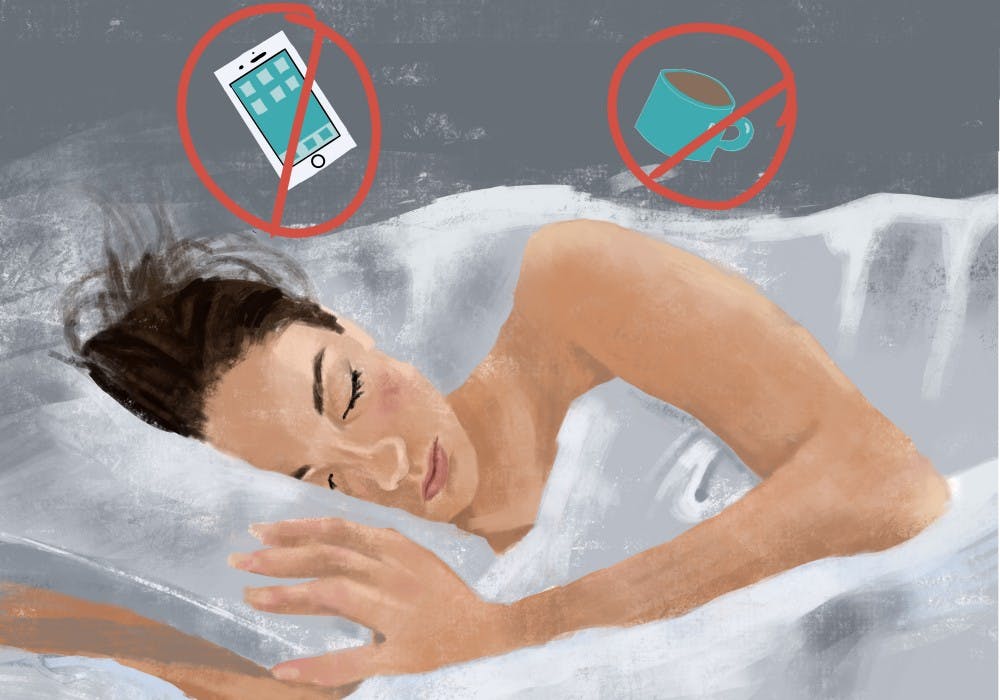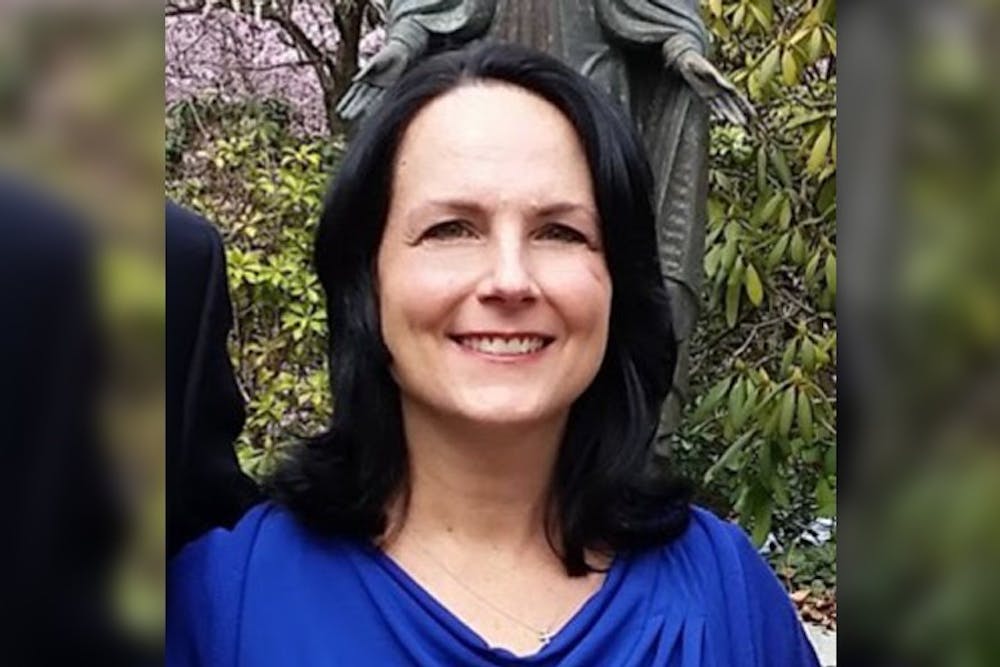
Stressful midterm examinations, heaps of homework, and loaded class schedules all contribute to sleep deprivation among Penn students. But while partaking in all-nighters can be an alluring option to students, Penn Medicine sleep specialists urge Quakers to remember the importance of sleep.
In order to improve sleep quality and gain more sleep, Penn Med experts suggest that students should cut down on late-night caffeine consumption and electronic use, avoid excessive napping, and regularly exercise to be more alert and awake throughout the daytime.
Janice Biddle, a nurse practitioner in the Penn Sleep Medicine department, warned against catching up on sleep during the weekend.
Waking up more than two hours past the typical time that someone wakes up can be disruptive. While an individual's biological clock can adjust for up to two hours outside of one's normal sleep schedule, exceeding that limit may make adjustment difficult, Biddle said.
Teenagers should get close to nine hours of sleep each night, while adults should get seven to nine hours of sleep, she added.
Students should also avoid using electronics before bed at all costs because brains are fooled into thinking light from screens is sunlight.
“A lot of people when they can’t sleep, they will pick up their cell phones and start going on Facebook or Instagram,” said Indira Gurubhagavatula, sleep medicine specialist at Penn Med's Center for Sleep and Circadian Neurobiology. “What they are doing is exposing their eyes to blue light that’s being emitted from the screen."
Gurubhagavatula said students tend to accumulate sleep debt, which is where people fall behind on the recommended sleep levels for days at a time. Sleep debt can have significant effects on memory, learning, mood regulation, decision making, and reaction time.
Activities like studying for tests or driving a car become more challenging as a result, Gurubhagavatula added. While drinking caffeine may make people more alert, it does not substitute sleep’s restorative function or effectively improve brain functions.
Although some people also claim that their body eventually adapts to sleep deprivation, Gurubhagavatula said this was untrue.
“It turns out we don’t actually get used to not getting enough sleep. Some people say, 'Oh, I am fine on five hours or six hours. My body got used to it',” Gurubhagavatula said. “There’s no such thing as getting used to it.”
Janice Biddle is a Nurse Practitioner in the Department of Sleep Medicine at Penn. She believes teenagers should get approximately nine hours of sleep per night. (Photo from Janice Biddle)
Napping during the daytime may also have significant effects on people's health. For people with sleeping disorders or teenagers who have a different body rhythm, a short 20 to 30 minute nap may be helpful, but people should should avoid over-napping because it can make people feel even more tired, Gurubhagavatula said.
While the recommended amount of sleep time for college students ranges from seven to nine hours, College freshman Alexander Brandt said he sleeps an average of six and a half to seven and a half hours per night, though he wishes he had more time so he could sleep for two additional hours.
College freshman Donya Zarrinnegar, however, said she is actually able to get more sleep in college than in high school because she has developed better time management skills and learned about the importance of sleep.
“I see the value in sleep a lot more now,” Zarrinnegar said. “I honestly feel I can’t function if I don’t get at least seven hours of sleep, and in high school, I feel I can go five or six hours a night.” She added that she tries to get seven to eight hours each night now to stay focused the next day.
For sleep experts, a fundamental change is needed to shift the sleep-deprived culture that dominates college campuses like Penn.
“We would never brag about how little food we got away with, or how little oxygen we got away with, or how little water we drank, so sleep is no different,” Gurubhagavatula said. “Going without it does not make us strong people. All it’s doing is depriving our bodies and our brains of something that we physiologically need.”
The Daily Pennsylvanian is an independent, student-run newspaper. Please consider making a donation to support the coverage that shapes the University. Your generosity ensures a future of strong journalism at Penn.
Donate



